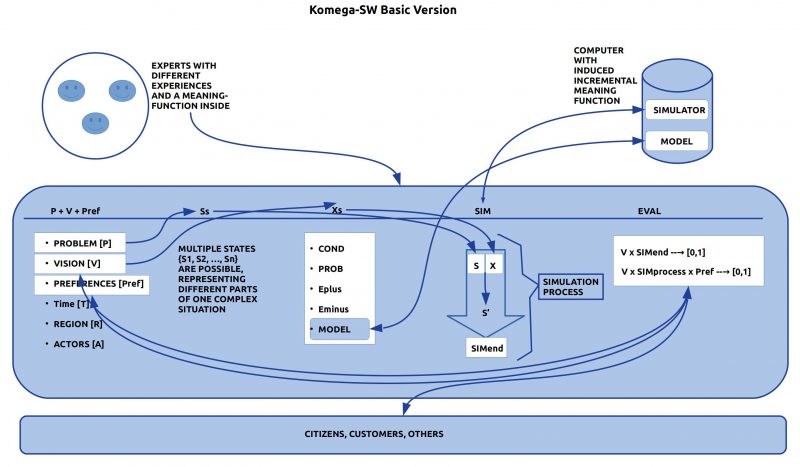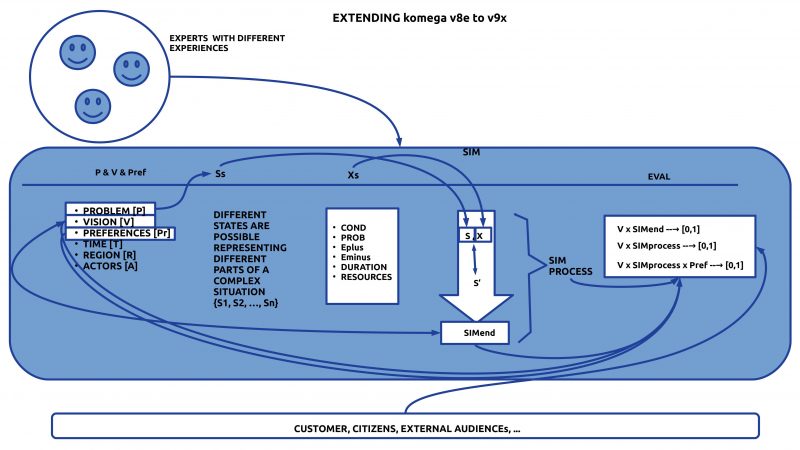Integrating Engineering and the Human Factor (info@uffmm.org) eJournal uffmm.org ISSN 2567-6458, Nov 15, 2020
Author: Gerd Doeben-Henisch
Email: gerd@doeben-henisch.de
CONTEXT
As described in the uffmm eJournal the wider context of this software project is a generative theory of cultural anthropology [GCA] which is an extension of the engineering theory called Distributed Actor-Actor Interaction [DAAI]. In the section Case Studies of the uffmm eJournal there is also a section about Python co-learning – mainly
dealing with python programming – and a section about a web-server with
Dragon. This document is part of the Case Studies section.
CONTENT
Introducing a new general interface to transfer messages to the simulator as computer to compute explicitly some functions.
PDF DOCUMENT
requirements-inductive-semantics-27Oct2020
VIDEO [de]
This video explains in German the new ‘computation on-demand’ element of the change rules. More details are explained in the preceding English Text of the PDF document. As next step this idea will be implemented and it will be shown with another video, how this idea looks like in action.
VIDEO 2 [DE]
Explains the first Problem-Vision-Preferences Module and makes some remarks how this is related to the final evaluation module.


